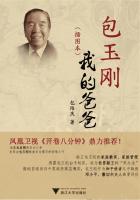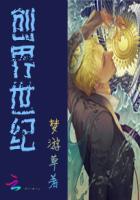I shall never forget the marvellous experience of crossing the Tyrol, and then descending the sunny side of the mountain to the Umbrian plain。
We alighted from the train at Florence and spent several weeks in ecstatic wanderings through the galleries, gardens, olive?orchards。At that time it was Botticelli who attracted my youthful imagination。I sat for days before the“Primavera,”the famous painting of Botticelli。Inspired by this picture, I created a dance in which I endeavoured to realise the soft and marvellous movements emanating from it;the soft undulation of the fower?covered earth, the circle of nymphs and the fight of the zephyrs, all assembling about the central fgure, half Aphrodite, half Madonna, who indicates the procreation of spring in one significant gesture。
I sat for hours before this picture。 I was enamoured of it。A nice old guardian brought me a stool, and viewed my adoration with kindly interest。I sat there until I actually saw the fowers growing, the naked feet dancing, the bodies swaying;until the messenger of joy came to me and I thought:“I will dance this picture and give to others this message of love, spring, procreation of life which had been given to me with such anguish。I will give to them, through the dance, such ecstasy。”
Closing time came, and I was still before the picture。 I wanted to fnd the meaning of spring through the mystery of this beautiful moment。I felt that so far life had been a bungle, and blind seeking;I thought:“If I can find the secret of this picture, I may show others the way to richness of life and development of joy。”I remember that I already thought about life like a man who has been to the wars with good intentions and who has been terribly wounded, and who, on refection, says:“Why should I not teach a gospel that will spare others from such mutilation?”
Such was my meditation before the“Primavera”of Botti?celli in Florence, which I tried afterwards to transform into a dance。 Oh, sweet, half seen pagan life, where Aphrodite gleamed through the form of the gracious but more tender Mother of Christ, where Apollo reached towards the frst branches, with the likeness of St。Sebastian!I felt all this enter my bosom with a food of peaceful joy, and I wished intensely to translate all this to my dance, which I named the Dance of the Future。
Here, in the rooms of an old palace, I danced for the artistic circle of Florence to the music of Monteverde and some melodies of earlier, anonymous masters。 To one exquisite melody for the viol d'amour, I danced an angel playing on an imaginary violin。
With our usual careless disregard of the practical, our money had again come to an end, and we were obliged to telegraph to Alexander Gross to send us the necessary sum to join him in Berlin, where he was preparing for my debut。 When we arrived in Berlin I was bewildered, in driving through the town, to fnd the entire city one faming poster of my name, and the announcement of my debut in Kroll's Opera House, with the Philharmonic Orchestra。Alexander Gross conducted us to a beautiful suite at the Hotel Bristol, in Unter den Linden, where the entire German Press appeared to be waiting for my first interview。From my studies in Munich and my experiences in Florence, I was in such a pensive and spiritual frame of mind that I greatly astonished these gentlemen of the Press by giving them, in my American German, a naive and grandiose conception of the Art of the Dance as a“grosste eraste Kunst,”and one which would bring all the other arts to a new awakening。
How diferently these German journalists listened than those to whom I explained my theories later on in America。 They listened to me with the most reverent and interested contemplation, and next day there appeared long articles in the German newspapers treating my dance with grave and philosophic import。
Alexander Gross was a courageous pioneer。 He had risked his entire capital on the launching of my performance in Berlin。He had spared no expense in advertising, having the first Opera House and the finest conductor, and if, when the curtain rose, revealing my simple blue curtains as scenery, and one small, slight figure on a huge stage, I had failed to arouse the applause at the frst moment from the puzzled Berlin audience, it would have meant utter ruin for him。But he was a good prophet。I did what he had predicted。I tookBerlin by storm。After I had danced for over two hours, the audience refused to leave the Opera House, but demanded encore after encore, until fnally, in one enthusiastic rush, they came to the footlights。Hundreds of young students actually climbed upon the stage, until I was in danger of being crushed to death by too much adoration。For many nights following they repeated the charming ceremony which prevailed in Germany of unhitching the horses from my carriage and drawing me through the streets in triumph, down Unter den Linden, to my hotel。
From that first night I was known to the German public by such names as“die g?ttliche, heilige Isadora。”On one of these evenings Raymond suddenly returned from America。He had grown too homesick for us, and said he could remain separated from us no longer。We then revived a project, which we had long cherished, of making a pilgrimage to the very holiest shrine of Art, of going to our beloved Athens。I felt that I was only at the gateway of the study of my Art, and after a short season in Berlin I insisted, in spite of entreaties and lamentations from Alexander Gross, upon leaving Germany。We again took the train for Italy, with sparkling eyes and high?beating hearts, to make together our long?deferred trip to Athens, via Venice。
We stayed in Venice for some weeks, reverently observing the churches and galleries, but, naturally, Venice could not mean very much to us at that time。 We admired a hundredfold more the superior intellectual and spiritual beauty of Florence。Venice did not yield me its secret andits loveliness until years after, when I was there with a slight, olive?complexioned, dark?eyed lover。Then, for the first time, I felt the sorcery of Venetian charms, but the first visit only left me impatient to take a boat and sail to higher spheres。
Raymond decided that our trip to Greece must be as primitive as possible, so, avoiding the big, comfortable pasenger boats, we boarded a post steamer, a little boat that sailed between Brindisi and Santa Maura。 At Santa Maura we alighted because the site of the ancient Ithaca was there, and there also was the rock from which Sappho had thrown herself in despair into the sea。Even now, when I take this trip in my memory, I recall those lines from Byron which came to me then:
The isles of Greece,
The isles of Greece, the isles of Greece,
Where burning Sappho loved and sung,
Where grew the arts of war and peace,
Where Delos rose and Phoebus sprung!
Eternal summer gilds them yet,
But all, except their sun, is set。
From Santa Maura we took a little sailing?boat at dawn, with only two men, and, on a burning July day, navigated through the blue Ionian Sea。We entered the Ambracian Gulf and landed at the little town of Karvasaras。
In hiring the smack, Raymond had explained with muchpantomime, and some ancient Greek that we wished our voyage as nearly as possible to resemble that of Ulysses。 The fisherman didn't seem to understand much about Ulysses, but the sight of many drachmas encouraged him to set sail, although he was loath to go far, and pointed many times to the sky, saying,“Boom, Boom,”and, with his arms indicating a storm at sea, to inform us that the sea was treacherous。And we thought of the lines in the Odyssey which described that sea:
So saying, he grasped his trident;gathered dense
The clouds and troubled ocean;ev'ry storm,
From every point he summoned, earth and sea
Darkening, and the night fell black from Heav'n。
The East, the South, the heavy blowing West,
And the cold North Wind clear, assaii'd at once
His raft, and heaved on high the billowy food。
All hope, all courage, in that moment, lost。
ODYSSEY V。
For there is no more changing sea than the Ionian Sea。 We risked our precious lives in this voyage which might have turned out too much like that of Ulysses:
While thus he spoke, a billow on his head,
Bursting impetuous, whiri'd the raft around,
And, dashing from his grasp the helm, himself
Plunged far remote。 Then came a sudden gust
Of mingling winds, that in the middle snapp'd
His mast, and, hurried o'er the waves afar,
Both sail and sail?yard fell into the food。
Long time submerged he lay, nor could with ease
The violence of that dread shock surmount,
Or rise to air again, so burdensome
His drench'd apparel proved;but, at the last,
He rose, and, rising, spitt'd from his lips
The brine that trickled copious from his brows。
And, further, when Ulysses was wrecked and meets Nausicaa:
For I am one on whom much woe hath fall'n。
Yesterday I escaped(the twentieth day
Of my distress by sea)the dreary deep;
For, all those days, the waves and rapid storms
Bore me along, impetuous from the isle
Ogyia;till at length the will of Heav'n
Cast me, that I might also here sustain
Afiction on your shores;for rest I think,
Is not for me。 No。The immortal gods
Have much to accomplish ere that day arrived;
But, oh, Queen, pity me!who after long
Calamities endured, of all who live
Thee first approach, nor mortal know beside
Of the inhabitants of all the land。
ODYSSEY Ⅵ。
We stopped at the little Turkish town of Prevesa, on the Epirus coast, and bought provisions—a huge goat?cheese and quantities of ripe olives and dried fish。As there was no shelter on the sailing?boat, I shall never forget to my dying day, the smell of that cheese and fish, exposed all day to a blazing sun, especially as the little boat had a gentle but potent rolling gait of its own。Often the breeze ceased, and we were obliged to take to the oars。Finally, at dusk, we landed at Karvasaras。
The inhabitants all came down to the beach to greet us, and the first landing of Christopher Columbus in America could not have caused more astonishment among the natives—which grew to speechless curiosity when Raymond and I knelt down and kissed the soil, Raymond declaiming:
Cold is the heart, fair Greece!That looks on thee,
Nor feels as lovers o'er the dust they loved;
Dull is the eye that will not weep to see
Thy walls defaced, thy mouldering shrines removed。
Indeed, we were half mad with joy。 We wanted to embrace all the inhabitants of the village and cry,“At last we have arrived, after many wanderings, in the Sacred Land of Hellas!Salute, O Olympian Zeus!And Apollo!And Aphrodite!Prepare, O ye Muses, to dance again!Our singing may awaken Dionysus and his sleeping Bacchantes!”
Up, O Bacchae, wife and maiden,
Come, O ye Bacchae, come,
Oh, bring the Joy?bestower,
God?seed of God the Sower,
Bring Bromios in his power
From Phrygia's mountain dome;
To street and town and tower,
Oh, bring ye Bromios home!
And don thy fawn?skin, fringed in purity
With feecy white, like ours。
I vowed with him, grey hair with snow?white hair,
To deck the new God's thyrsus, and to wear
His fawn?skin, and with ivy crown our brows。
There was no hotel and no railroad in Karvasaras。 That night we slept in one room, the only one the inn could offer us。At least, we didn't sleep very much。First, because Raymond discoursed all night on the Wisdom of Socrates, and the Celestial Compensation of Platonic Love;and, secondly, because the beds were made of single planks which were very rough;and Hellas contained many thousands of little inhabitants who wanted to feast on us。
At dawn we parted from the village, with Mother sitting in a two?horse carriage containing our four valises, and we, having cut staves from laurel?trees, escorting her。The whole village accompanied us a good part of the way。We took the ancient road which Philip of Macedon had tramped with his army over 2,000 years ago。
The road we took from Karvasaras to Agrinion winds through mountains of savage, rugged grandeur。 It was a beautiful morning, the air clear as crystal。We sped along on the light wings of youthful feet, often leaping and bounding before the carriage, accompanying our steps with shouts and songs of joy。When we crossed the River Aspropotamos(the ancient Achelous),Raymond and I, in spite of the tearful entreaties of Elizabeth, insisted upon going for a dip, or baptism, in its limpid waters。We did not realise how strong the current was, and were nearly carried away。
At one point of the journey, two savage sheep?dogs raced towards us across the entire valley from a distant farm。They would have attacked us with the ferocity of wolves, had not our valiant coachman frightened them of with his big whip。
We had our lunch in a little wayside inn, where, for the first time, we tasted wine preserved with resin in classic pig?skin。It tasted like furniture?polish, but, making wry faces, we insisted that it was delicious。
At last we came to the ancient city of Stratos, which was built upon three hills。 This was our first adventure among Greek ruins。The sight of Doric columns sent us into ecstasies。We followed Raymond as he guided us to the site of the Theatre of the Temple of Zeus on the WestHill。In our vivid imaginations there arose a mirage in the setting sun—the city again covering the three hills, fair and beautiful。
By night we arrived at Agrinion, fairly exhausted, but in such a glow of happiness as rarely comes to the lot of mortals。 The next morning we took the stagecoach down to Missolonghi, where we paid tribute to the faming heart of Byron, enshrined in the remains of this heroic town, the ground of which is soaked with the blood of martyrs。Is it not strange to refect that it was Byron who snatched the heart of Shelley from the red embers of the funeral pyre?Shelley's heart is now enshrined at Rome, and it may be that the hearts of these two poets are still in mystic communion with each other from“The glory that was Greece, to the grandeur that was Rome。”
All these memories subdued and saddened our efervescent pagan joy。 The town still retains all the tragic atmosphere of Delacroix's famous picture,“La Sortie de Missolonghi,”when almost all the inhabitants, men, women, and children, were massacred in their desperate eforts to cut through the Turkish lines。
Byron died in Missolonghi in April 1824. It was two years after, also in April, almost on the anniversary of Byron's death, that these martyrs joined him in the shadowy land;he who was so ready to give all for their liberation。Is there anything more touching than Byron's death in that brave town of Missolonghi?His heart enshrined there among those martyrs who died that the world might again knowthe immortal beauty of Hellas。For, truly, all martyrdom is fruitful。With full hearts and tearful eyes we left Missolonghi in the dying light, watching it recede from the deck of the little steamer bound for Patras。
At Patras we had a hard struggle to decide between the attractions of Olympia and Athens, but a great, longing im?patience for the Parthenon finally prevailed, and we took the train for Athens。 The train sped through radiant Hellas。At one moment we glimpsed the snow?capped Olympus。At another we were surrounded by twisting, dancing nymphs and hamadryads of the olive?groves。Our delight knew no bounds。Often our emotions were so violent that we could only find expression in tearful embraces。The stolid peasants at the little stations eyed us with wonder。They probably thought we were either drunk or crazy, whereas we were onlv exalted in our search for the highest and brightest of all wisdom—the blue eyes of Athena。
We arrived at violet?crowned Athens that evening, and the daybreak found us, with trembling limbs and hearts faint with adoration, ascending the steps of her Temple。As we mounted, it seemed to me that all the life I had known up to that time had fallen away from me as a motley garment;that I had never lived before;that I was born for the first time in that long breath and first gaze of pure beauty。
The sun was rising from behind Mount Pentelicus, revealing her marvellous clearness and the splendour of her marble sides sparkling in the sunlight。 We mounted the laststep of the Propylaea and gazed on the Temple shining in the morning light。With one accord we remained silent。We separated slightly from one another;for here was Beauty too sacred for words。It struck strange terror into our hearts。No cries or embraces now。We each found our vantage?point of worship and remained for hours in an ecstasy of meditation which left us all weak and shaken。
We were now all together, my mother and her four children。 We decided that the Clan Duncan was quite sufficient unto itself, that other people had only led us astray from our ideals。Also, upon viewing the Parthenon, it seemed to us that we had reached the pinnacle of perfection。We asked ourselves why we should ever leave Greece, since we found in Athens everything which satisfied our aesthetic sense。One might wonder why, at that time, after the public success that I had had, and after my passionate interlude in Budapest, I should have felt no longing to go back to either。The truth is that, when I had started on this pilgrimage, I had not had either the desire for fame nor for making money。It was purely a spiritual pilgrimage, and it seemed to me that the spirit which I sought was the invisible Goddess Athena who still inhabited the ruined Parthenon。Therefore we decided that the Clan Duncan should remain in Athens eternally, and there build a temple that should be characteristic of us。
From my Berlin performances there was in the bank asum which seemed to me inexhaustible, and, therefore, we set out to find a suitable site for our Temple。 The only one who was not perfectly happy was Augustin。He brooded for a long time, and finally confessed that he felt very lonesome for his wife and child。We considered this a great weakness on his part, but consented—as he was already married and had a child—that there was nothing for us to do but to send for them。
His wife arrived with the litle girl。 She was fashionably dressed and wore Louis XV heels。We looked askance at her heels, for we had already taken to sandals, so as not to defile the white marble floor of the Parthenon。But she strongly objected to wearing sandals。As for us, we had decided that even the Directoire dresses which I wore, and Raymond's knickerbockers, open collars, and flowing ties, were degenerate garments, and we must return to the tunic of the Ancient Greeks—which we did, much to the astonishment of the Modern Greeks themselves。
Having ftted ourselves out with tunic and chlamys and peplum, and having put fillets round our hair, we set out to find the site for our Temple。 We explored Colonos, Phaleron, and all the valleys of Attica, but could not find anything that was worthy of our Temple。Finally, one day in a walk toward Hymettus, where the beehives are from which the famous honey comes, we crossed a rise in the ground, and Raymond suddenly laid his staff upon the ground and shouted,“Look, we are on the same level as the Acropolis!”And sure enough, looking to the west, we sawthe Temple of Athena, in startling propinquity, although we were in reality four kilometres distant from it。
But there were difficulties with this place。 First, no one knew to whom the land belonged。It was so far from Athens, and frequented only by shepherds tending their flocks and goats。It took us a long time before we discovered that the land belonged to five families of peasants who had held it for over a hundred years。It was divided like a pie from the middle downwards in sections。After a long search we found the heads of these five families and asked them if they would sell。There was a great astonishment among the peasants, as no one had ever evinced any interest in this land before。It was far from Athens, and was rocky soil, producing only thistles。Besides, there was no water anywhere near the hill。Nobody had con?sidered this land of any value heretofore。But the moment that we let it be known that we wished to purchase it
the peasants who owned it gathered together and decided that the land was priceless。They asked a sum entirely out of proportion。Nevertheless the Clan Duncan was determined to buy this site, and we proceeded to deal with the peasants in this manner。We invited the fve families to a banquet where we had lamb on the spit, and other kinds of tempting food。We also served much raki—the cognac of the country。At the feast, with the help of a little Athenian lawyer, we drew out a bill of sale to which the peasants, who were unable to write, put their marks。Although we paid somewhat dearly for the land, we esteemed that thisbanquet was a great success。The barren hillock, on the same level as the Acropolis, known since ancient times as Kopanos, now belonged to the Clan Duncan。
The next step was to secure paper and architectural instruments and make the plans for a house。 Raymond found the exact model desired in the plan of the Palace of Agamemnon。He scorned the help of architects, and himself engaged the workmen and the stone carriers。We decided that the only stone worthy of our Temple was that from Mount Pentelicus, from whose sparkling sides were hewn the noble columns of the Parthenon。We, however, were modestly content with the red stone which is found at the base of the mountain。From then on, each day could be seen a long procession of carts, carrying these red stones;winding their tortuous way from Pentelicus to Kopanos。As each cartload of red stone was thrown down upon our ground, we became more and more delighted。
Finally arrived the momentous day when the cornerstone of our Temple was to be laid。 We felt that this great event should be duly celebrated with a worthy ceremony。Goodness knows, not one of us was of a churchy turn of mind, each being completely emancipated through our ideas of modern science and free?thinking。Yet we thought it more beautiful and fitting to have this corner?stone laid in the Greek manner with a ceremony conducted by a Greek priest。We invited all the peasantry of the countryside for miles around to take part。
The old priest arrived, clothed in black robes and wearinga black hat with a black veil fowing from its ample crown。 The priest asked us for a black cock to ofer as a sacrifice。This is the same rite, handed down through the Byzantine priests, from the time of the Temple of Apollo。With some difficulty the black cock was found and presented to the priest, with the sacrificial knife。In the meantime bands of peasants had arrived from all parts of the country。In addition came some of the fashionable people from Athens。By sunset a great crowd was assembled on Kopanos。
With impressive solemnity the old priest commenced。 He asked us to designate the exact line of the foundations of the house。We did this by dancing about it in a square which Raymond had already designed upon the ground。He then found the corner?stone nearest to the house and, just as the great red sun was setting, he cut the throat of the black cock and its crimson blood squirted upon the stone。Holding the knife in one hand and the slaughtered bird in the other, he solemnly promenaded three times around the square of the foundation。Then followed prayer and incantation。He blessed all the stones of the house and, asking us our names, he uttered a prayer in which we frequently heard the names Isadora Duncan(my mother),Augustin, Raymond, Elizabeth, and Little Isadora(myself)。Each time he pronounced our name Duncan as though it were spelt Thuncan, with a hard th, instead of a D。Again and again he exhorted us to live piously and peaceably in this house。He prayed that our descendants also should live piously and peaceably in this house。When he had donewith prayer, the musicians arrived with their primitive instruments of the country。Great barrels of wine and raki were opened。A roaring bonfre was set ablaze on the hill, and we, together with our neighbours, the peasantry, danced and drank and made merry all through the night。
We decided to remain for ever in Greece。 Not only that, but, as Hamlet says, we vowed, too, that there should be no more marriages。“Let those who are married remain married,”etc。
We accepted Augustin's wife with ill?concealed reservation。But for our own part, we drew up a plan in a copy?book, which was to exclude all but the Clan Duncan, and therein we set down the rules for our lives to be spent on Kopanos。We did this somewhat on the same plan as Plato in his Republic。It was decreed to arise at sunrise。We were to greet the rising sun with joyous songs and dances。Afterwards we were to refresh ourselves with a modest bowl of goat’s milk。The mornings were to be devoted to teaching the inhabitants to dance and sing。They must be made to celebrate the Greek gods and to give up their terrible modern costumes。Then, after our light lunch of green vegetables—for we had decided to give up meat and become vegetarians—the afternoons were to be spent in meditation, and the evenings given over to pagan ceremonies with appropriate music。
Then began the building of Kopanos。 As the walls of the palace of Agamemnon were about two feet thick, the walls of Kopanos must also be two feet thick。It wasn't untilthose walls were well under construction that I realised how much red stone from Pentelicus would be necessary, and also how much each cartload of stone cost。A few days later we decided to camp out on the spot for the night。And then it was suddenly and effectively brought to our consciousness that there was not a drop of water to be had for miles around!We looked at the heights of Hymettus, where the honey was, and before our eyes were many springs and flowering rivulets。Then we gazed on Pentelicus, whose eternal snows were gushing cascades down the mountain?side。Alas!We realised that Kopanos was completely dry and arid。The nearest spring was four kilometres away!
But Raymond, nothing daunted, hired more workmen and started them digging an artesian well。 In the course of the digging, he came upon diferent relics, and insisted there had been an ancient village on these heights, but I have my own reasons for thinking that it was only a cemetery, for the deeper the artesian well was sunk the drier and drier the ground became。At length, after several weeks of fruitless searching for water on Kopanos, we returned to Athens to ask counsel of the prophetic spirits which we were sure inhabited the Acropolis。We secured a special permit from the city so that we could go there on moonlit evenings, and we formed the habit of sitting in the ampitheatre of Dionysus, where Augustin would give his recitations from the Greek tragedies, and where we often danced。
We were completely self?sufficient in our clan。We did not mingle at all with the inhabitants of Athens。Even when we heard one day from the peasants that the King of Greece had ridden out to see our Temple, we remained unimpressed。For we were living under the reign of other kings—Agamemnon, Menelaus, and Priam。















